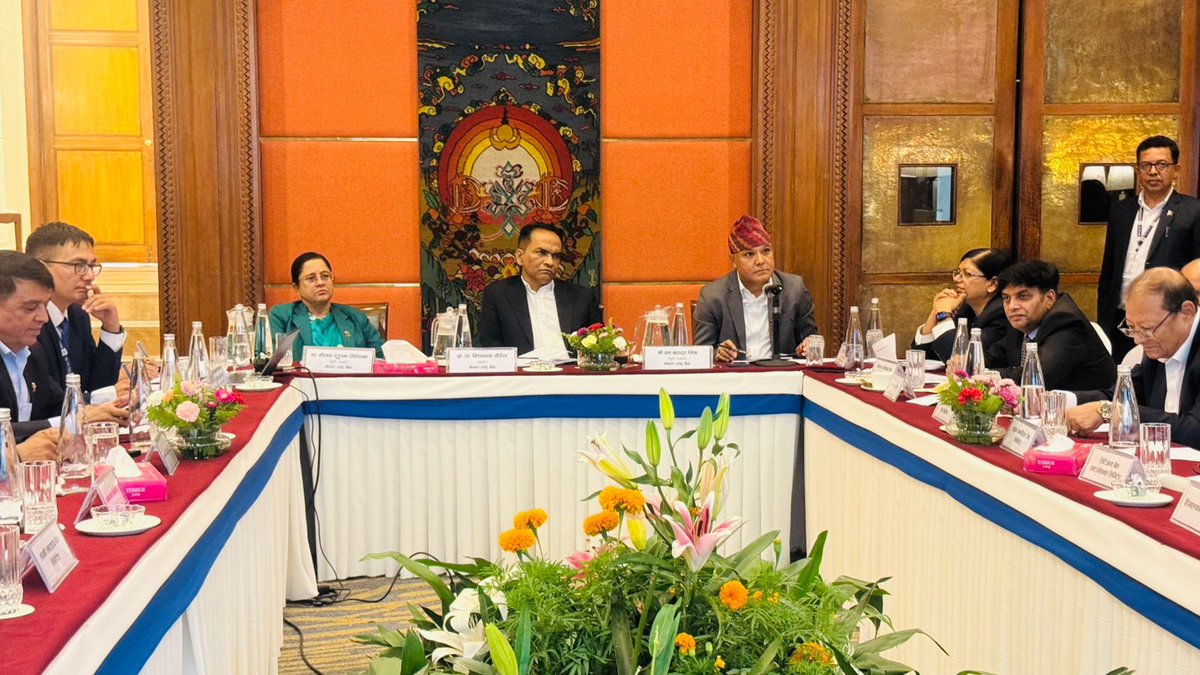Kathmandu: Nepal Rastra Bank (NRB) Governor Dr Bishwanath Paudel has urged chairpersons of commercial banks to act prudently under the newly introduced flexible monetary policy, warning against reckless investments that could destabilize the financial sector.
Speaking in a discussion held with bank chairs on Wednesday, he emphasized that although the policy aims to reinvigorate the sluggish economy, banks must align their planning with the targeted 12 percent credit expansion.
Governor Paudel cautioned that in the past, a similar flexible approach had led to overenthusiastic lending by banks, ultimately causing distress in the banking system. “We must not repeat those mistakes,” he said.
He stressed that the new policy is designed to ease pressure on the banking sector, not to encourage unsustainable lending. Paudel warned bank executives not to pressurize their management teams for aggressive credit expansion.
Clarifying NRB’s core intention, the Governor explained that the central bank aims to strike a balance—supporting economic revitalization while ensuring financial stability. He called on the banks to prepare a detailed six-month liquidity and investment plan and submit it to NRB promptly.
A similar directive had been issued the day before to CEOs of commercial banks, requiring them to present their business plans for the same period.
Paudel signaled a potential policy shift, hinting at a move from universal banking to more specialized banking services. He added that NRB was open to revisiting its stance on directed lending but insisted that credit must be expanded inclusively across various sectors.
The discussion also covered proposed amendments to the Bank and Financial Institution Act (BAFIA) and the Second Financial Sector Development Strategy. A key point of contention was the bill’s provision to clearly separate the roles of bankers and businesspeople—a move that has sparked considerable debate within the financial and business communities.
Bank chairs raised concerns about the potential impact of this proposed separation, emphasizing the need for a well-defined exit plan. They warned that enforcing such a provision without adequate time and policy clarity could significantly disrupt economic activities.
Chandra Prasad Dhakal, Chairman of Global IME Bank and President of the Federation of Nepalese Chambers of Commerce and Industry (FNCCI), highlighted the seriousness of the issue. He said that if the amendments are passed without changes, they could have grave implications for national economic activity. He insisted that any policy separating bankers and businesspeople must come with a practical and well-structured exit plan.
The draft bill under discussion in the House Finance Committee includes provisions to reduce the current 2 percent threshold for significant ownership in banks to 1 percent, prohibit major shareholders (those holding more than 1 percent) from borrowing from their own banks, and broaden the definition of “related party” in banking regulations.
While there is broad consensus among government, NRB, and lawmakers in favour of the banker-businessperson separation, all agree that an appropriate transition period must be ensured. However, key issues—such as what an effective exit policy should look like—remain unclear, even among Finance Ministry and NRB leadership.
Wednesday’s discussion primarily revolved around these implications—both positive and negative—of separating bankers from business owners. Many bank chairs questioned whether such a policy was even necessary in the context of Nepal.
One participant noted, “Today, promoters can’t even sell their shares. Even at half price, there are no buyers. If they are to exit, they need a reasonable timeframe and conducive environment.”
Upendra Paudel, President of the Confederation of Banks and Financial Institutions Nepal (CBFIN), argued that earlier government calls had encouraged professionals and entrepreneurs to invest in banking. He said the overlap between bankers and businesspeople had never posed a problem.
“There is no pressing need to enforce this separation,” he said, although he also conceded that if it were to proceed, sufficient time must be provided.



Comment Here